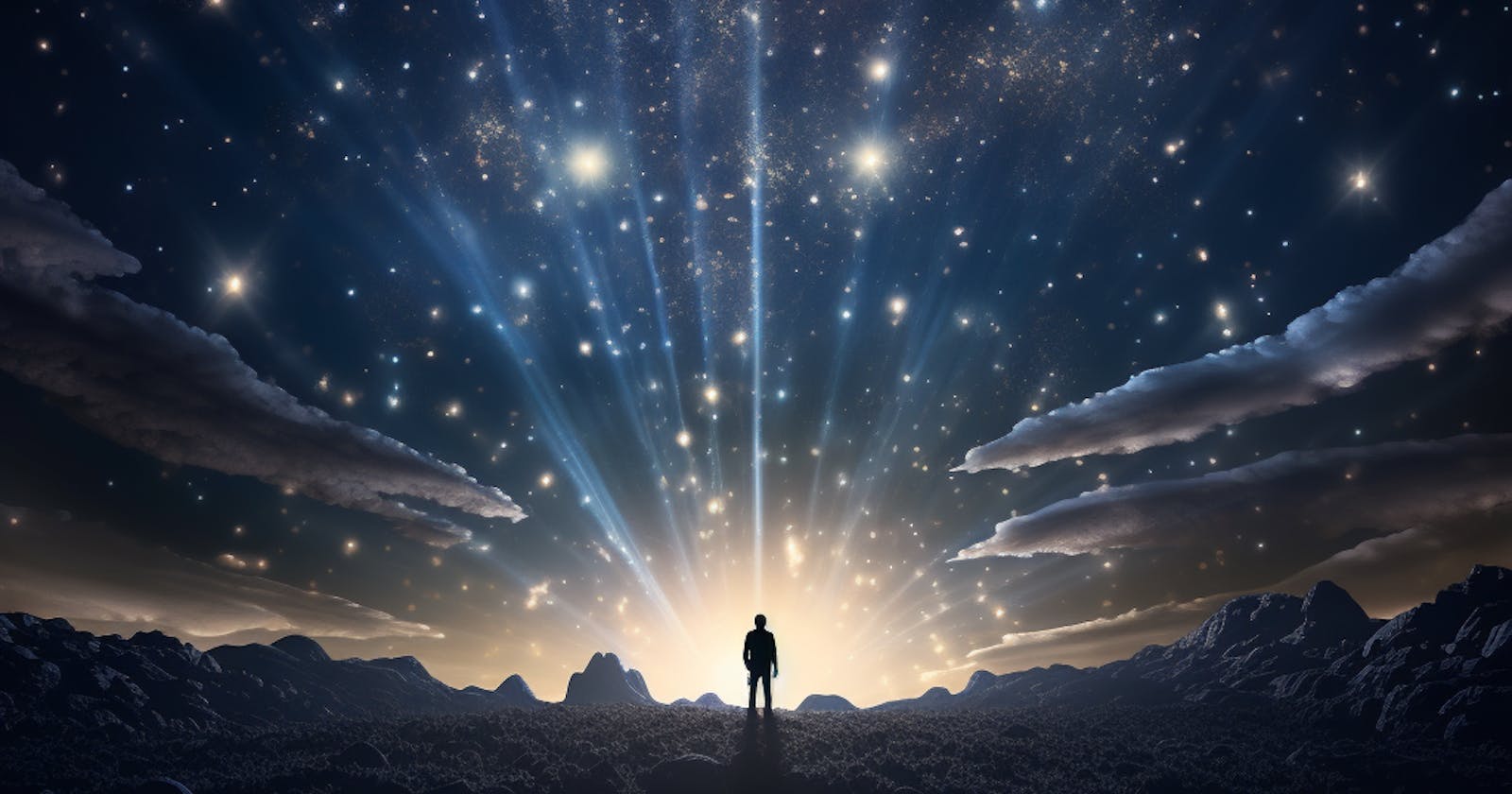As humans, we've always been curious about what lies beyond our planet. The idea of reaching out to possible beings from other worlds is something that has tickled our imagination for ages. But space is massive, and even sending a message to our closest star buddies would take more than a lifetime. Messages could take many, many years to get there, and that's a bit of a conversation killer.
In the past, we've sent some cool stuff into space hoping someone out there might find it. The Tesla car is probably the most famous followed by the golden records (a mixtape of sounds and pictures from earth) on the Voyager probes. But the golden records were just a snapshot of our time, if you think of the changes that have happened since 1977 and will continue at a rapid speed.
Now with SpaceX and others making space exploration an order of magnitude cheaper than previous generations and the advancements in technology, I start to think what if we sent an LLM into deep space?
Imagine another space civilisation receiving our LLM (Let's call it earthGPT) millions of years from now, we maybe a distant memory of our solar system by then or are close behind the rocket with our new propulsion system.
They might not understand a word of our languages at first, but with time, they could teach our LLM their own language, adding much more value than static information. It's like having a cosmic language exchange programme, where our digital doppelganger learns to chat in alien tongues, helping bridge the communication gap between Earth and our potential extraterrestrial beings.
The same way we try to understand the static information held in hieroglyphs and the pyramids, imagine if we could converse with an LLM of that time.
Through this unique exchange, another civilisation could get a taste of our culture, our kindness, our artistic expressions, and the leaps and bounds we've made in technology and understanding our world. They could listen to our poems, read our stories, and maybe even appreciate a good meme or pixel art, seeing the brighter sides of our human nature.
But, as they conversate through the depths of our digital knowledge, they'd also stumble upon the darker chapters of our story. They'd learn about our knack for warfare, our greed, and the many destructive tools we've crafted. This could paint a scary picture, making us appear as potential threats. They might start to wonder if giving us a cosmic call is a good idea or a recipe for disaster or if we need to be removed from the chessboard altogether.
In discussing this idea with a friend he suggested what if we are on the receiving end of another civilisation’s AI enhancements and the pyramids were ChatGPT 0.001, it’s all very crazy to think about.
The fact that all this knowledge, the good, the bad, and the ugly, can be packed into a tiny memory card and sent sailing through the stars for a few millions of dollars is mind-boggling.
It's a game-changer in how we think about storing and sharing our existence. It's not just about books or museums anymore; it's about dynamic knowledge rendering, providing a way for our interactive digital minds to share experiences across the cosmos.
And here's another wild thought: what if we could store this digital treasure trove not just on some faraway planet, but on our own moon or a satellite? It could serve as an extra safeguard, a backup of our earthly existence. If anything goes haywire down here, we'd have a slice of our civilisation, our digital essence, safely tucked away in the cosmic cloud. It's like creating a time capsule, only it's floating in space, whispering the tales of Earth to the endless expanse, waiting for someone, or something to come and say hi.

